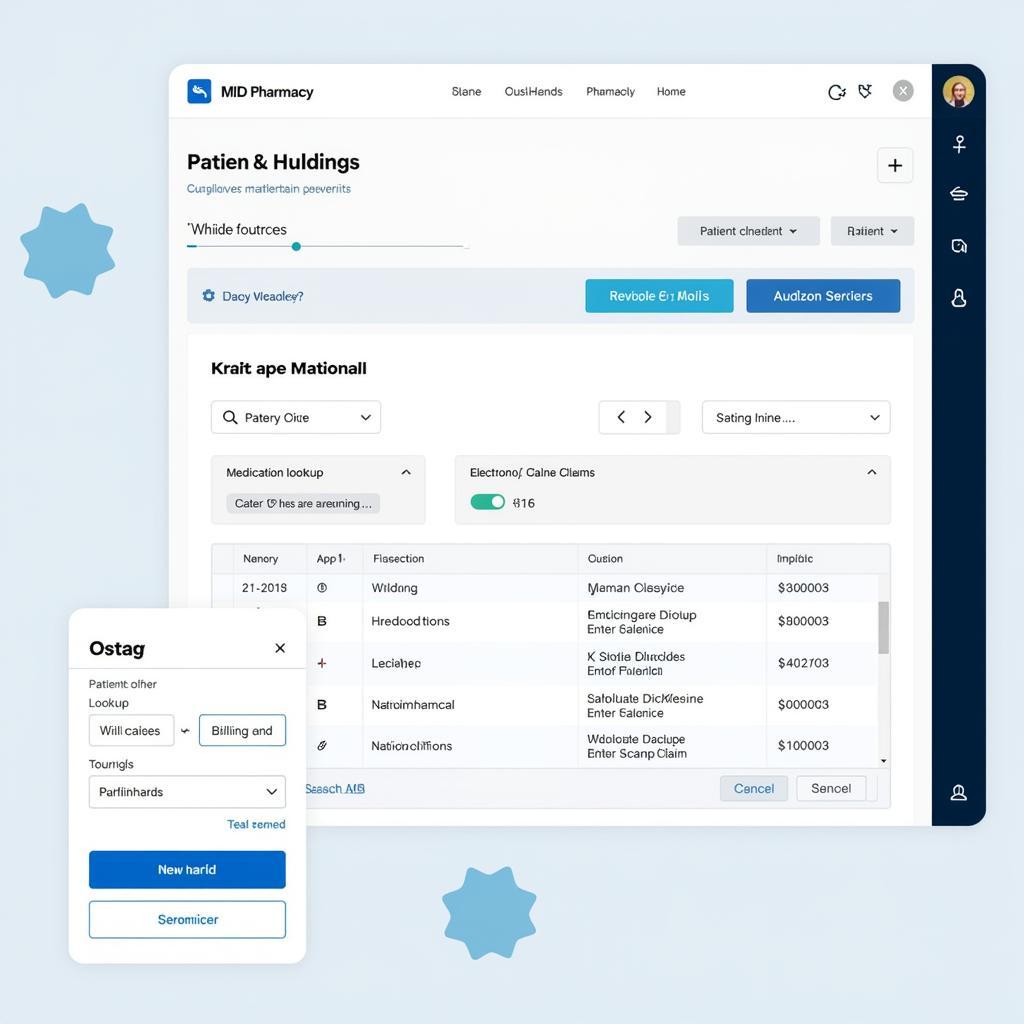A Form for Billing Pharmaceutical Care Services: Streamlining Your Process
When it comes to billing for pharmaceutical care services, having a streamlined and efficient system is crucial. A well-designed form can make all the difference in ensuring accurate record-keeping, timely payments, and reduced administrative burden. This article will delve into the essential elements of a pharmaceutical care services billing form, providing valuable insights for pharmacies and healthcare providers.
 Pharmaceutical Billing Form
Pharmaceutical Billing Form
Understanding Pharmaceutical Care Services Billing
Pharmaceutical care services encompass a range of patient-centered activities aimed at optimizing medication use and improving health outcomes. These services may include medication therapy management, medication reconciliation, patient counseling, and more. Billing for these services requires a specialized form that captures all necessary information for reimbursement.
Essential Elements of a Pharmaceutical Care Services Billing Form
A comprehensive billing form for pharmaceutical care services should include the following key elements:
- Patient Information: Full name, date of birth, contact information, insurance details (policy number, group number).
- Prescriber Information: Name, NPI (National Provider Identifier), contact information.
- Medication Information: Name, strength, dosage form, quantity dispensed, days supply.
- Service Provided: Description of the specific pharmaceutical care service rendered.
- Date of Service: The date on which the service was provided.
- Billing Codes: Relevant CPT (Current Procedural Terminology) or HCPCS (Healthcare Common Procedure Coding System) codes.
- Units of Service: The number of units of the service provided.
- Provider Information: Name, NPI, contact information of the pharmacist or healthcare provider who rendered the service.
- Place of Service: Location where the service was provided (e.g., outpatient pharmacy, hospital).
Benefits of Using a Standardized Form
Implementing a standardized billing form for pharmaceutical care services offers numerous advantages:
- Improved Accuracy: Reduces errors and omissions in billing information.
- Increased Efficiency: Streamlines the billing process and reduces administrative time.
- Faster Reimbursement: Ensures timely submission of claims and reduces delays in payment.
- Enhanced Compliance: Promotes adherence to billing regulations and reduces the risk of audits.
- Better Record-Keeping: Provides a clear and organized record of services provided.
 Digital Billing System for Pharmacies
Digital Billing System for Pharmacies
Tips for Optimizing Your Billing Process
- Stay Updated on Coding Changes: Regularly review and update your knowledge of billing codes for pharmaceutical care services.
- Utilize Billing Software: Consider investing in specialized billing software designed for pharmacies. This can automate many aspects of the billing process.
- Provide Thorough Documentation: Maintain detailed records of services provided, including patient encounters, interventions, and outcomes.
- Train Staff on Billing Procedures: Ensure all staff members involved in billing are properly trained on billing guidelines and procedures.
- Review Claims Before Submission: Carefully review all claims for accuracy and completeness before submitting them to payers.
“Accurate and timely billing is essential for the financial health of any pharmacy,” says John Smith, a certified pharmacy technician with over 10 years of experience. “Using a standardized form and following best practices can significantly improve your billing operations.”
Conclusion
A well-designed form for billing pharmaceutical care services is an indispensable tool for pharmacies and healthcare providers. By incorporating the essential elements outlined in this article and implementing best practices, you can optimize your billing process, ensure accurate reimbursement, and focus on what matters most – providing exceptional patient care.
FAQs about Pharmaceutical Care Services Billing Forms
1. Are there specific billing forms required for different pharmaceutical care services?
While there isn’t a one-size-fits-all form, the key elements remain consistent. It’s essential to use a form that aligns with industry standards and captures all necessary information.
2. Can electronic billing systems replace paper forms?
Yes, electronic billing systems are becoming increasingly popular and offer advantages like automated claim submission and reduced paperwork. However, ensuring the software you choose meets your specific needs is crucial.
3. What are some common mistakes to avoid when billing for pharmaceutical care services?
Common errors include using incorrect billing codes, failing to provide sufficient documentation, and missing claim filing deadlines.
4. Where can I find resources and guidance on billing for pharmaceutical care services?
Professional organizations like the American Pharmacists Association (APhA) offer resources, webinars, and training programs on pharmacy billing and coding.
5. What should I do if a claim is denied or rejected?
Carefully review the denial reason and determine if an error needs correction or additional documentation is required. Contact the payer for clarification if needed.
For more information on car service-related topics, you can check out these resources:
- How Much Tip to Give Car Service
- Does Toyota of Newton Offer Service Loaners Cars
- Why Service Your Car at a Dealership
Need further assistance with car diagnostics or service? Contact us via WhatsApp: +1(641)206-8880 or Email: [email protected]. Our dedicated customer support team is available 24/7 to address your queries.

